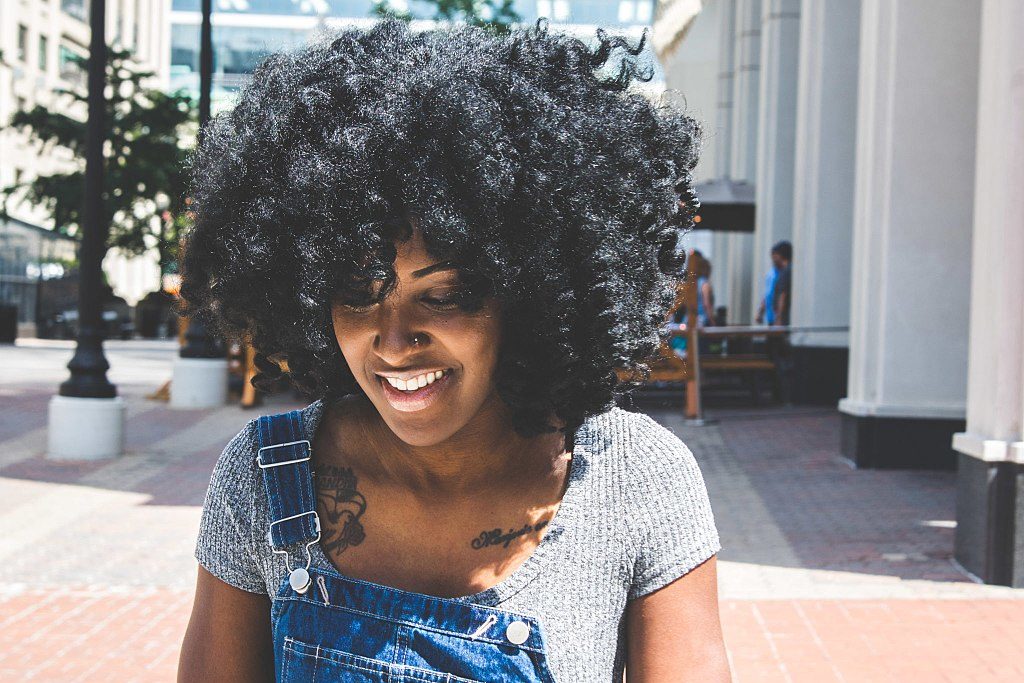Khalisa Rae Thompson had been a customer at multiple Aveda Salons for 15 years. A routine visit to an Aveda in Raleigh, N.C., would turn her otherwise good experiences with the chain into an eye-opening lesson on hair discrimination against Black women, according to ESSENCE.
Thompson said she had previously gone to more than four other Aveda locations and was coiffed by Black hairstylists, but this was her first time at the Raleigh salon.
Related Article: Florida’s Hope Scholarship Looks to Stop Bullying But Leaves Out Black Students
After receiving her service, she went to the front desk to pay where an unidentified woman said that Thompson was required to pay $10 extra. A flabbergasted Thompson questioned the additional fee. She was informed that she incurred a “texture fee” because of the additional products that were used on her hair.
Thompson protested the imposed “texture fee” but ultimately wound up paying while calling it a discriminatory practice. The front desk clerk tried to reassure her that it wasn’t based on her having natural hair. When she returned home, Thompson called the salon to file a complaint with customer service and wasn’t satisfied with the response, according to Glamour.
“White folks are openly admitting that they’ve gone to not only other salons, but they’ve gone to Aveda, and this has never happened to them,” Thompson told ESSENCE. “What struck me the most was the fact that White people were like, ‘This has never happened to me before, and that’s not okay.’ That’s where I think we have a bigger conversation. That’s what makes this much bigger than the black tax and pink tag. Aveda and other salons need to be held accountable.”
After an unsuccessful attempt to resolve the situation at the local level, she took to Twitter to air her grievance regarding the “texture fee.”
So I just got charged $10 extra at Aveda salon for the “textured” hair fee. The woman at the counter said, “It’s because we have to use extra product. It’s not meant to be discriminatory.”
Is it just me or is that not okay?
— Audre Lawda Mercy (@k_lisarae) October 15, 2019
Other women chimed in about their experiences as well. There was a stark contrast in the responses from Black women and white women.
I’ve had this problem at several salons. I call them white salons. They always quote me at 200 for the thickness and texture of my hair or refuse to do my hair. I’d have to drive 40 mins to an hour for a salon that would accept me but luckily I finally found a good salon
— Friendly Neighborhood Jameelah (@MamaMeelah) October 16, 2019
My hair is pretty curly for a white girl and I have never been charged extra for the large amount of product it requires…so where’s the line? (We know the answer.)
— Kate Gorton (@KGisWriting) October 16, 2019
A former Aveda employee also chimed in on Twitter.
I was an Aveda stylist for six years and this is straight up NOT a brand policy. And it is very much not okay. I wonder if @tippishorter has thoughts?
— ˈsɛlfseɪm [ sohl ] (@selfsamesoul) October 16, 2019
Hair discrimination among Black women is an ongoing saga. Though laws in certain states have been put in place to protect them, natural hair discrimination appears to be a practice that is still very much in place in certain industries. New York and California are among some of the states that have introduced legal protection for Black women with natural hair.
Aveda is a subsidiary of Estée Lauder. Out of the 13 members on the executive leadership team, there are nine white men and four women. One member is a Black woman.
Lauren Donovan, from Aveda Global Communications, emailed Fair360, formerly DiversityInc a statement on Thursday regarding Thompson’s experience at the Raleigh salon. She apologized on behalf of Aveda, and the salon she visited issued a refund for her service.
“At Aveda, we are committed to delivering the very best in service, embracing all hair types,” Donovan wrote. “We in no way condone or tolerate discriminatory behavior … We value consumer feedback and will be working with our network of independently owned salons to offer education and resources to prevent this from happening again.”
Related Article: Cincinnati Votes for Ordinance Against Natural Hair Discrimination


















